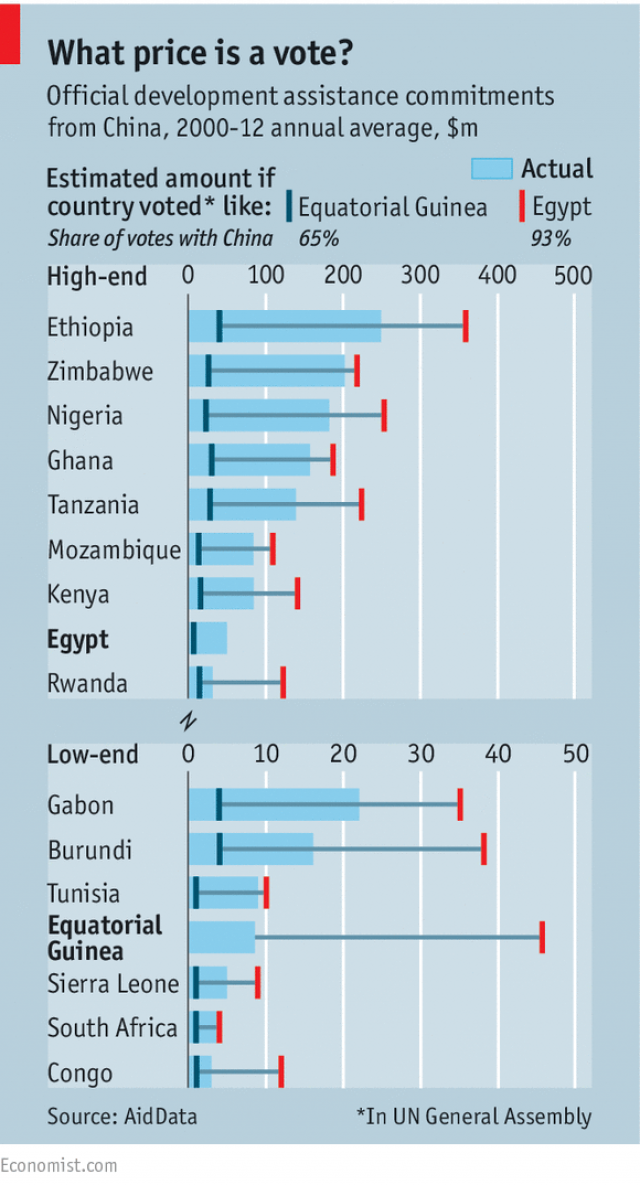You should note that the votes in UNGA (United Nations General Assembly) on such political issues are nothing but symbolic and aren't always binding. In other words, they mean just political declaration or opinion. Therefore, not all the participant nations take a political agenda very seriously unless it affects their or their allies' interest directly. For example, United Nations General Assembly Resolution 68/262
was adopted on Mar. 27, 2014 in response to the Russian annexation of Crimea and entitled "Territorial integrity of Ukraine".
As you can see in the link, 10 countries (11 including Russia) such as N. Korea, Venezuela, Syria, etc. maintaining close ties with Russia rejected it and 58 countries which are not close enough to introducing and approving countries abstained and 24 countries were absent.
The non-binding resolution, which was supported by 100 United Nations member states, affirmed the General Assembly's commitment to the territorial integrity of Ukraine within its internationally recognized borders and underscored the invalidity of the 2014 Crimean referendum.
Russia's annexation of Crimea didn't affect other unrelated countries as much as it did Ukraine and it is not surprising that so many countries voted to abstain or didn't even participate in the voting.
